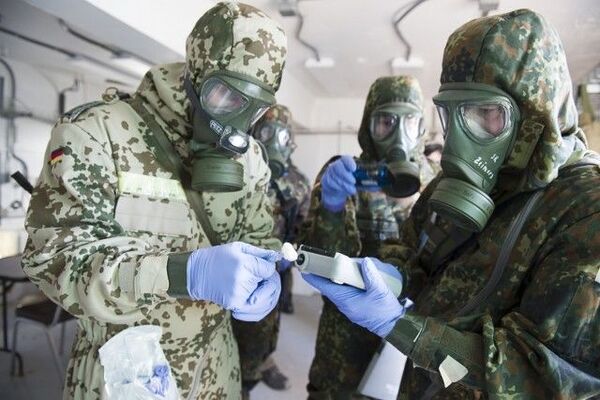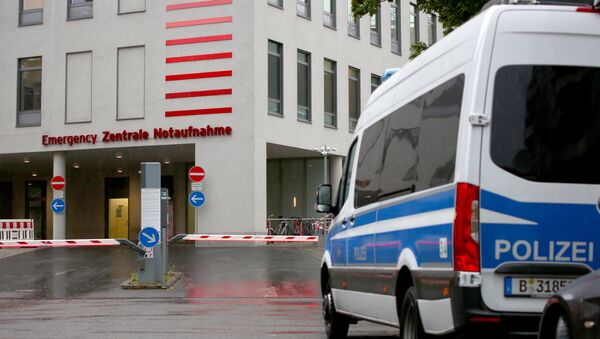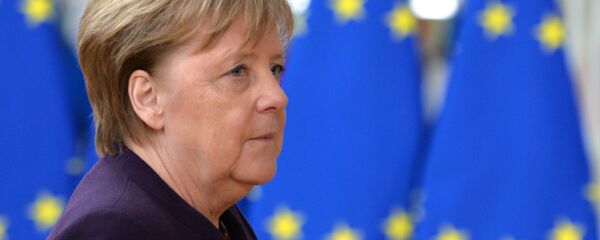Willy Wimmer, German lawyer and politician (CDU), Bundestag member (1976-2009), Parliamentary State Secretary of the Federal Ministry of Defense (1985-1992), Vice-President of the CSCE/OSCE Parliamentary Assembly (1994-2000), explains why the West's statements on Navalny's illness may be viewed as another part of an anti-Russian saga.
Sputnik: As the German government reported yesterday, citing toxicological examination results by Charité doctors, Russian opposition figure Alexei Navalny had "undoubtedly" been poisoned with a Novichok group chemical warfare agent. What’s your take on that?
Willy Wimmer: This is another step in the escalation policy towards Russia. I believe we have to differentiate between several things. On the one hand, we can only welcome that all possible measures are being taken to save Mr Navalny’s life and eliminate any dire consequences. There is no doubt about that. But there is one hitch: in this context, there are questions to the federal government. There’s no doubt regarding the authority of the Charité experts, but why didn’t they involve unaligned experts in the research?
Sputnik: The chemical is said to have been used in the assassination attempt on former spy Sergei Skripal and his daughter. As we know, they survived. At the same time, some claim that the attack was carried out on the orders of the Russian leadership. The German government is now calling on the Russian authorities to take a position on Navalny’s 'poisoning'. Logically speaking, why should the Russian leadership have used the poison that hadn’t worked previously, in public, at the airport with CCTV cameras everywhere?
Willy Wimmer: These are the things that criminologists do. One may ask which bodies, given the case’s international scope, could have arranged all this. If you want to find out what really happened, there are probably institutions in the world that can figure it out, because it’s their job. Back then, in Great Britain, the question was raised whether it was possible to accept the British side’s version of what had happened, or one should consider the fact that there is the British government’s chemical lab in Porton Down, near the place where the attack on the Skripals took place. All these things cause great public concern because they suggest that there are forces acting here, which, by such actions against certain persons, are trying to provoke a military controversy in Europe. We cannot isolate the German government’s statement from the events in Minsk and Belarus.

The American President should ask himself whether he is able to influence the politics of his own country. Unfortunately for the West, in the situation we are witnessing and in which the German government is actively involved, there’s something to think about: should we get involved in a new confrontation with Russia on the eve of the US elections? After all, this is the reality that has developed in Europe, and we have to admit that we have almost no way out of it. Either we will act as a sovereign state, or we will have to dance to NATO’s tune.
Sputnik: The German government has announced that it would consult with its EU and NATO partners on an “adequate joint reaction” to this “dismaying event.” What do you think what is meant by that and what will happen next? Will there be renewed sanctions or expulsion of Russian diplomats?
Willy Wimmer: I don’t even want to think about a possible escalation in this context. This is largely a statement “tailored” to London’s interests. In connection with the Skripal case, the British saw that there were great doubts in continental Europe regarding whether a further policy of confrontation with Russia is needed. To this day this is the main annoying factor for those who fabricate reasons for war. And London is at the forefront here. When the German government makes such a statement, it is going to be picked up in Brussels, at NATO headquarters, because it means that Germans can finally be taken in. This has nothing to do with normal interstate relations and peaceful political cooperation. Reasons for war are being sought. We have already seen military incidents, the number of which is constantly growing; and it reminds me of the worst times of the Cold War era. In this context, this statement can only be regarded as such.
Sputnik: So could it have been a false flag operation by a third party trying to provoke this very reaction?
Willy Wimmer: You get it right. We shouldn’t ignore fact that all possible measures are being taken, including attempts to blackmail the mayors on Rügen island when it comes to the Nord Stream 2 project. This is a unique strategy that we’re dealing with in a political context. Any possible means are being used to provoke a cooling in German-Russian relations. And God knows what else they will come up with. The worst thing here is that we are dealing with a friendly state in the east of the continent, against which the screws are constantly being tightened to change the domestic political situation there and make it submit to the West.
I described this in our book with Alexander Sosnovsky, we are dealing with a consistent policy in this regard. The West cannot pretend that this is an isolated case. These are links of a chain that started with a staged massacre in Yugoslav Racak, and the current incident related to Russia may not be the last one. There will definitely be another similar case. This is a staging designed to drag us into conflict so that the federal government can no longer hide under the guise of humanity.




